Writer, poet, and funeral director Thomas Lynch examines life and death in "The Depositions," a collection of new and selected essays
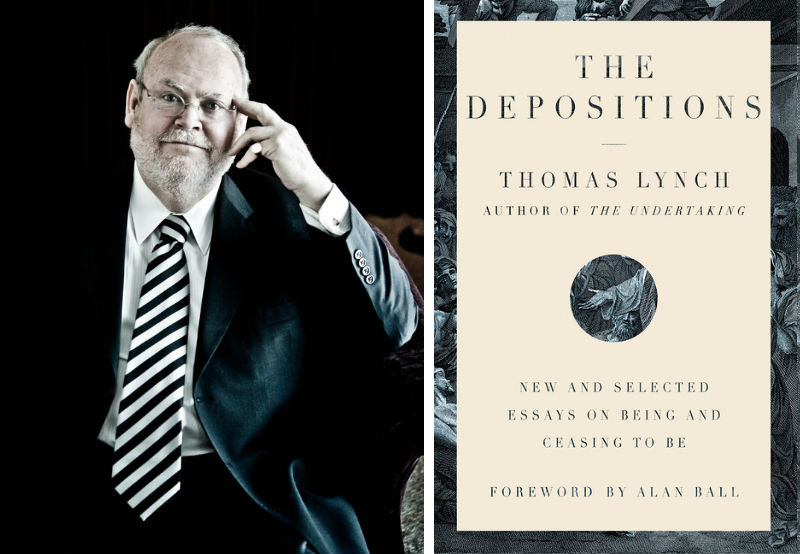
Essayist and funeral director Thomas Lynch writes, “By getting the dead where they need to go, the living get where they need to be.”
That quote forms the first sentence of “The Done Thing,” the last essay in his recent collection, The Depositions: New and Selected Essays on Being and Ceasing to Be.
For years, Lynch has been in the business of the former and has reflected on the latter, as well as the former, through writing. He stands clear on many things about death, including that funerals serve the living and that the dead don’t care.
The Depositions: New and Selected Essays on Being and Ceasing to Be sifts through these subjects with pieces from his earlier four books of essays, plus new ones that consider the author’s state of affairs.
Lynch’s philosophical insights and candid facts about death all orbit around a universal truth appearing in the last sentence of the same paragraph containing the earlier quote:
Hammond B3 player Chris Foreman and Soul Message Band are steeped in Chicago's swaggering jazz-blues tradition
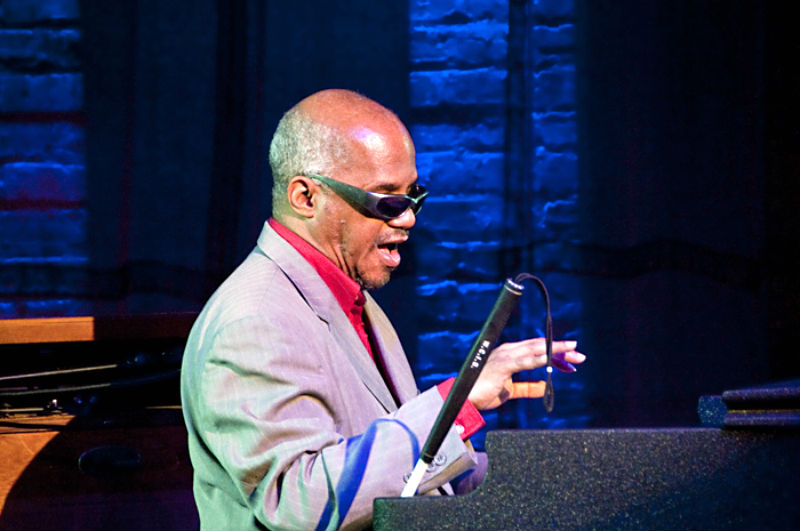
When you hear Hammond B3 player Chris Foreman glide across the keyboard, you can all but hear Chicago's Saint James AME Church congregation shouting behind him. As a performing member of Saint James for 40-plus years, Foreman's music is steeped in gospel and blues, with the added energy of smeary bop lines that evoke fellow organ greats Jimmy McGriff and Jimmy Smith.
Perhaps the only reason Foreman isn't mentioned in the same breath as the Jimmys, or even a contemporary player like Joey DeFrancesco, is that he hasn't recorded a lot as a leader and hasn't spent a ton of time outside of Chicago.
But on Friday, January 31, the Soul Message Band with Foreman, drummer Greg Rockingham, and guitarist Lee Rothenberg will leave the Windy City for two sets at Blue LLama in Ann Arbor for an evening of greasy, feel-good jazz-blues. The group is performing in support of its recent album, Soulful Days (Delamark), which is filled with gut-bucket swagger and interplay so deep that it might touch the bottom of Lake Michigan.
Since Foreman is legit part of Hammond history, we asked him to name five songs by five fellow B3 players and tell us what he likes about the tunes and the musicians.
"It's difficult to exclude a lot of our organ greats," Foreman said, but there's no denying the five musicians he picked are among the top players of the instrument.
Check out Foreman's selections below, listen to Soulful Days, and see a live video of Soul Message Band before they take the Blue LLama stage.
But first, let's start with his beautiful solo-organ tribute to McGriff at his 2008 memorial service.
Ann Arbor author Alexander Weinstein explores the human experience in the Computer Age with speculative fiction collection "Universal Love"
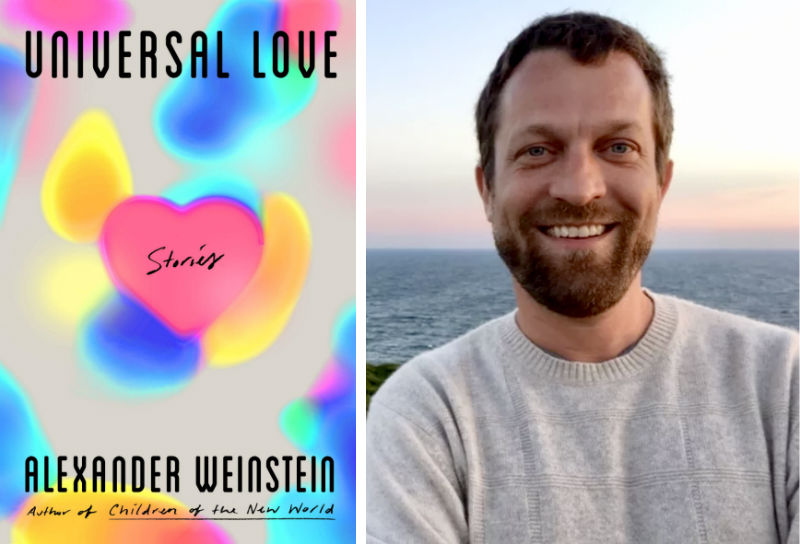
People spend too much time on phones. Kids are addicted to their screens. Technology is ruining how we communicate.
But what if tech also forces us to figure out how to find connections even in the age of emoji-only text messages?
Some of these issues are at the heart of Alexander Weinstein’s Universal Love, a collection of short speculative-fiction stories about an eclectic group of characters, including a woman who becomes closely acquainted with a hologram version of her deceased mother and a man with depression who seeks electronic surgery to erase his troubled past.
Weinstein, an Ann Arbor resident and professor at Siena Heights University in Adrian, Michigan, says that he can see the addiction to the constant stream of information that our technology affords.
As wonderful as technology can be in connecting people with friends, or in supporting human justice, or in accessing information readily, I can see that my students are becoming increasingly addicted to technology. And it's not just them -- it's all of us. Right now, we’re in a kind of binge-drinking stage of technological addiction. There are emails to check, Facebook posts to like, Instagram photos to upload, Tinder/Grinder profiles to swipe, emojis to send, and endless text messages. At stoplights, I see other drivers, sending off one more message before the light turns green. Next to us in the restaurant is a family eating dinner in silence as they individually play with their smartphones. And at bus stops around the world, grown men and women are playing tiny games on their screens like children.
Straight Outta Nairobi: Dr. Pete Larson's Dagoretti Records brings the sounds of Kenya to Ann Arbor
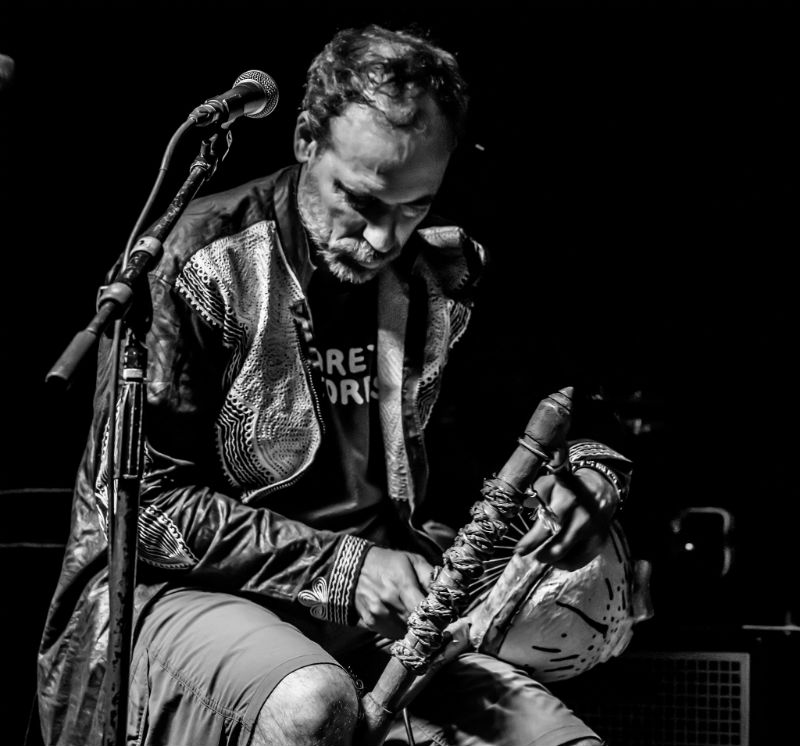
When Dr. Peter Larson found out he was going to Malawi in Southeast Africa as part of his graduate studies, one question came to his mind:
"Where's Malawi?" Larson said with a smile during an interview at the Ann Arbor District Library. "I didn't know anything about Africa."
Now an epidemiologist at the University of Michigan's Institute of Social Research, Larson later went to Nairobi, Kenya to work on public health issues. He lived there between 2014-2017 and immersed himself in the music scene.
That experience changed the trajectory of Larson's artistic life.
A longtime guitarist who played in numerous rock and noise bands since the 1990s, including 25 Suaves and Couch, Larson is also one of the people behind the experimental Bulb Records, which released the first records by Wolf Eyes and Ann Arbor native Andrew W.K.
But Larson was so enchanted the first time he heard a nyatiti -- an eight-string lyre/lute-type traditional instrument of the Luo people in Western Kenya -- he decided to learn how to play it.
"In 2015, I received an instrument from a friend and had no idea what to do with it," Larson wrote in the press release for the Nyatiti Attack LP on Dagoretti Records by his teacher, Oduor Nyagweno, who he lovingly calls Old Man. "Sometime in 2016, I saw Daniel Onyango play with his band Africa Jambo Beats in Nairobi and approached him about taking lessons. He then introduced me to the Old Man, I haven’t looked back."
Women of color in Washtenaw pen poetry anthology, "Love & Other Futures," as part of the Untold Stories of Liberation & Love project
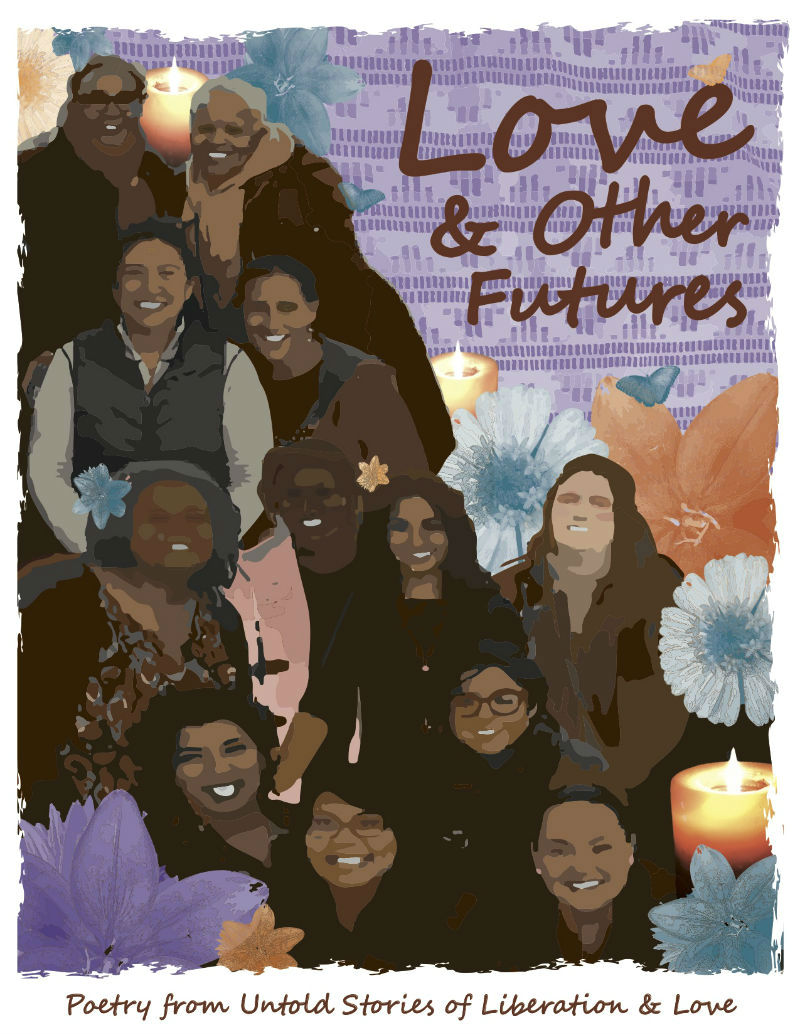
A writing space created for and led by women of color in Washtenaw County.
That’s what the five organizers of the Untold Stories of Liberation & Love project sought to build and have been creating with the help of an Ann Arbor Area Community Foundation grant. They held three Ypsilanti-based workshops with local women of color and produced a poetry anthology, Love & Other Futures, by those women in 2019.
Planning is underway for this year, the second of two years of funding. Carrying out this vision has been a means to engage in community and leadership that is deliberately disruptive to writing here.
“We’re disrupting the idea that poetry is an elite thing," said poet and organizer Julie Quiroz. "We’re disrupting the way that our society turns art into a competitive, individualistic process, rather than a way to build community. We’re challenging our county to recognize the powerful creative leadership that already exists among women of color here."
Curiosity Cured the Cat: Dr. Howard Markel encourages readers to explore in "Literatim: Essays at the Intersections of Medicine and Culture"
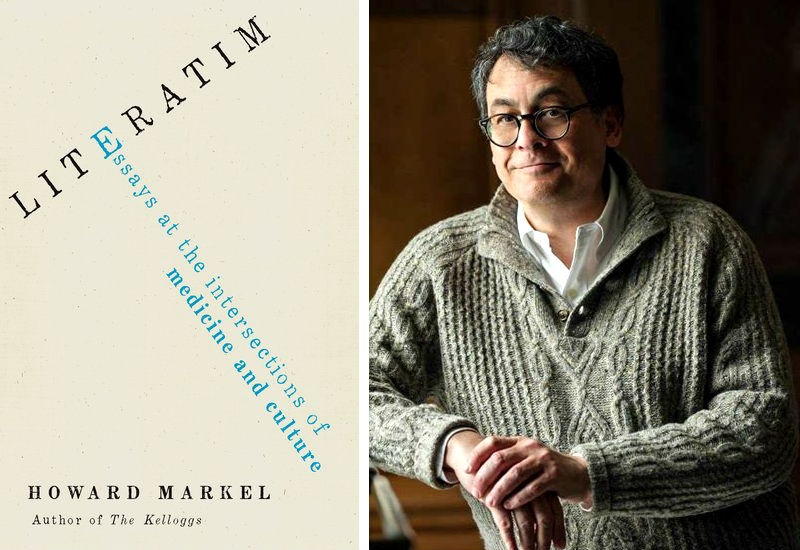
When you've been a medical journalist for decades and have written hundreds of essays and articles, it might be difficult to determine which writings to include in a collection. But Dr. Howard Markel says it wasn’t as hard as one might think to assemble Literatim: Essays at the Intersections of Medicine and Culture.
“I’ve written for a variety of places, but a lot of that has been reportage and not essays. Some articles about patients really didn’t fit either,” says Markel, who is the George E. Wantz Distinguished Professor of the History of Medicine and the director of the Center for the History of Medicine at the University of Michigan. “I wanted the book to be about medicine and how it intersects with culture, so after talking with the editor at Oxford University Press, I went and got my articles out of my file cabinet and literally put them on the floor in front of me. After I wrote the introduction, the rest came together nicely.”
Nothing IFFY about the newly announced Independent Film Festival Ypsilanti

Washtenaw County is renowned for its cinema events, from the predominant Ann Arbor Film Festival (March) and the Sundance/Cannes/etc.-affiliated Cinetopia (May) to the new Nevertheless (July), which focuses on female-identifying filmmakers, and all the traveling fests and U-M-sponsored foreign-film series.
But all of those events happen in Ann Arbor, primarily at the Michigan Theater.
Filmmaker Donald Harrison, who runs 7 Cylinders Studio, and multimedia artist Martin Thoburn want to make another part of Washtenaw Country an important destination for cinephiles, so they've launched the annual Independent Film Festival Ypsilanti (IFFY).
"I've imagined a film festival happening in Ypsilanti for almost a decade," Harrison said via email, "but venue options have been limited. Last year Martin expressed interest in starting it with me -- it was especially appealing that the festival's identity would be IFFY -- so we set things in motion."
Songs to Learn and Sing: Catching up with The Kelseys and KWITNY

A lot of us hibernate in the winter -- and to an outsider, it may seem like The Kelseys have been slumbering since last spring. But the Ann Arbor pop-rock band, which has only played a relative handful of concerts over the past year, is comprised of four full-time University of Michigan students, three of whom are in their senior year.
It's no fun doing late-night load-outs at a nightclub when you know there's a mechanical engineering test in the morning.
But even if The Kelseys haven't been on stage as of late, the group did release a steady stream of songs in 2019, and singer-guitarist Peter Kwitny continued to create and release solo music, too.
The Kelseys, who formed in 2016 and named themselves after U-M's museum of archeology, recently completed their So Little to Say project with the release of "Something Else," the fifth song in the series. (A 2018 Kelseys tune was also remixed last year into slow-burn electronica: "Pollyanna (Jeff Basta Mix)")
"These tracks were recorded at multiple locations," said drummer Josh Cukier of So Little to Say, answering Kelseys questions for Kwitny, guitarist Evan Dennis, and bassist Liam O’Toole (who is a junior at U-M). "All live drums were recorded in Toledo, Ohio, at Steven Warstler's studio. Most of the lead vocals were recorded there as well. Most other components -- guitar, bass, synth, and percussion -- were recorded in The Stu, which was the name affectionately assigned to [my] bedroom at the house we lived in last year. A few remaining components were recorded in the Duderstadt Studios with Ryan Cox acting as the engineer; these include the saxophone, piano, spoken word, and group vocal parts in '1998' and 'Something Else.'"
The Kelseys have self-described as an "indie-dance pop band," though that doesn't give enough credit to the group's radio-friendly sound: It's easy to imagine So Little to Say's upbeat "This Life" or "Everything Is Beautiful" wedged between Fun. and Foster the People on Ann Arbor's 107.1-FM.
Former U-M professor Carmen Bugan's new poetry collection, "Lilies From America," relates nature and the human experience

Poet Carmen Bugan has gone through many transitions, from her tumultuous childhood in Romania to moving to the United States. Still, she writes, “The road to a better life has not yet been planned, / Everyone is waiting for an architect.” Both uncertainty and possibility hover in those lines, which appear in a recent poem called “New Life.” That poem is among a new selection in Lilies From America: New & Selected Poems 2004-2019.
Lilies From America starts with a poem of the same title and then covers Bugan’s three collections -- 2004’s Crossing the Carpathians, 2014’s The House of Straw, and 2016’s Releasing the Porcelain Birds -- plus new poems dating from 2016 to 2019. Calling these poems autobiographical would be an understatement; they comment on family, nature, time, love, and language (the last of which Bugan discusses in-depth on episode 18 of The RC Podcast, “Carmen Bugan ’96 and the Language of Freedom”). This new collection discloses a snapshot of the trajectory of Bugan’s life, going from early days to current sentiments, through the well-selected and illustrative poems.
Bugan’s poetry is inspired by her childhood containing the political imprisonment of her father and exile of her family, and then by her experiences in the U.S. Her writing musters perseverance and suggests ways to keep going despite change and parting and borders. Looking to nature as a parallel, the poems draw on the landscape and flora of the places significant to Bugan. In “Long Island Sound,” dated January 23, 2018, cycles of starting and ending relate to human experience, as the poet reflects:
To see again that which I knew and cherished:
The translucent lift of water and algae,
Clam shells and egg-like rosy stones,
Fluent ending in a new beginning.
Nature becomes a way of understanding what is happening to the people in the poems. The “Moon" is set on an autumn night in a room aglow with moonlight and offers this last stanza: “I felt not too far from being translated, / The same way sunlight was interpreted / By the moon face we could see.” These feelings of being seen and of also making one’s own observations permeate Bugan’s poetry, both explicitly in describing the political protests written on a typewriter in Romania by her parents, as well as in sharing transcriptions of her family’s surveillance tapes, and subtly through the surrounding environment.
Yet even as time gives way to transformations, moments emerge to hold dear, moments in which to linger. On a visit to aging parents, the poet expresses a wish to accurately capture the instant: “While the glasses empty slowly and we are grateful / That we still can have that one drink, together, / Standing in the sunshine, with the song of birds.” Identifying these memories as important, and observing them, stand alongside the history of political protest and anguish in these poems.
Bugan is based in Long Island, New York, and she was the 2018 Helen DeRoy Professor in Honors at the University of Michigan and the 2018 Dow Visiting Scholar at Saginaw Valley State University.
Bugan reads with David Cope, who is Bugan’s former teacher from Grand Rapids Community College prior to her transfer to the University of Michigan, at Literati Bookstore on January 16, 7 pm. Ahead of her visit, I interviewed her for Pulp.
U-M grad Chris McCormick's novel "The Gimmicks" meditates on relationships, wrestling, and the Armenian Genocide through altering perspectives

While the cover may show a picture of two opponents in a wrestling hold, The Gimmicks by Chris McCormick is about far more than matches. The novel chronicles the stories of Ruben Petrosian, Avo Gregoryan, and Mina, how their lives intersect, and how they love and hurt each other multiple times.
Each character overlaps with the others in ways that are both fortuitous and disastrous. Ruben, small and jealous, first feels envious of Mina’s backgammon luck and then goes on to seek revenge for Turkey’s denial of the Armenian Genocide with the Armenian Secret Army for the Liberation of Armenia in the 1980s. Avo, large and kind, comes to live with his cousin’s cousin Ruben and his family in 1971, gets caught up in a ploy to be a part of Mina’s backgammon success, follows a request by Ruben to go to the United States, strikes off on his own as a wrestler, and finds himself misunderstood in several situations. Mina, lucky and earnest, garners success in playing backgammon, and while her luck holds in some ways, she experiences various losses throughout her life. Terry Krill, Avo’s wrestling manager, reluctantly begins to recall his past and piece together the others’ stories 10 years after the fact in 1989.
Their converging lives are told through chapters grounded in particular times and places and through the reflections of these people. During a reunion between Mina and Avo, she tells him, “Our lives aren’t metaphors, halved or broken or split. Our lives are our lives, whole if they feel complete, whole if they feel incomplete.” Her message generalizes the agonizing challenges that they encounter. Good intentions might not be enough or allow them to fulfill their desires.
Early in the novel, Mina muses in a journal: “That the world is round makes me hope that time is round, too, and that maybe I’ll loop to the start one day.” At that unexpected reunion with Avo later, “she felt the muscles in her face mirroring his, signaling a blue smile of her own, and she knew all at once about the roundness of time.” Such parallels and recurring ideas appear throughout the book -- similes and metaphors rewarding for the reader. Another is when Mina’s husband recalls the story of his first wife and mother: "He defended one to the other with all of his heart, so that he ended up without the trust of either.” Similarly soon after, Mina accuses Avo of being caught between two people, of being "someone who confused love for something you could only loan out to one person at a time." These threads bring the characters’ stories that sprawl across time and countries together with poignant and harsh realities.
McCormick, also the author of the earlier short story collection, Desert Boys, grew up in California and graduated from the University of Michigan with an MFA. He teaches at Minnesota State University, Mankato.
McCormick visits Ann Arbor to read at Literati Bookstore on Friday, January 10, at 7 pm. I interviewed him ahead of time.


































